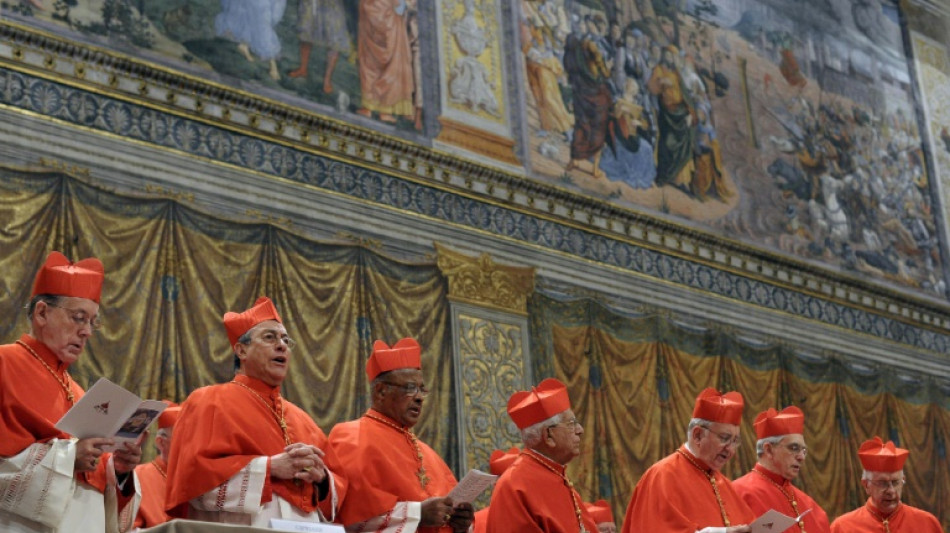
-
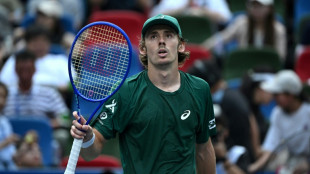 De Minaur, Auger-Aliassime through to Shanghai quarter-finals
De Minaur, Auger-Aliassime through to Shanghai quarter-finals
-
Canal Istanbul stirs fear and uncertainty in nearby villages
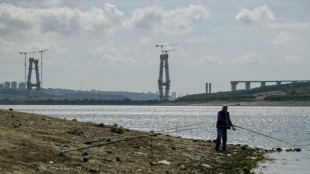
-
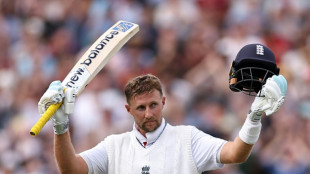 Root backs England to end Ashes drought in Australia
Root backs England to end Ashes drought in Australia
-
British PM Starmer hails India opportunities after trade deal
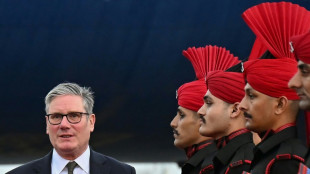
-
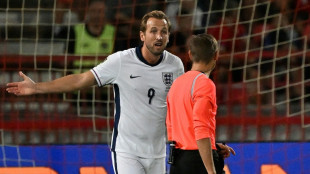 England captain Kane could miss Wales friendly
England captain Kane could miss Wales friendly
-
Tennis increases support for players under corruption, doping investigation
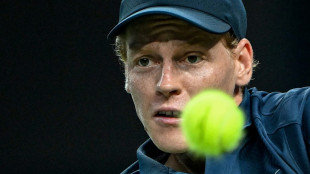
-
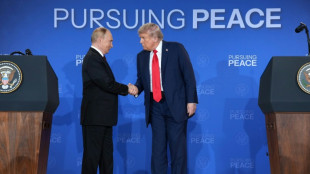 Russia says momentum from Putin-Trump meeting 'gone'
Russia says momentum from Putin-Trump meeting 'gone'
-
EU wants key sectors to use made-in-Europe AI
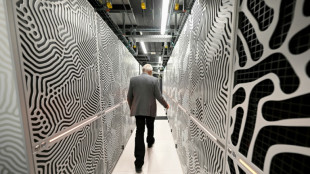
-
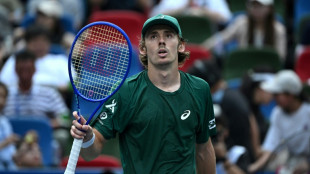 De Minaur, Rinderknech through to Shanghai quarter-finals
De Minaur, Rinderknech through to Shanghai quarter-finals
-
Gisele Pelicot says 'never' gave consent to accused rapist
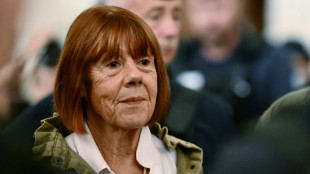
-
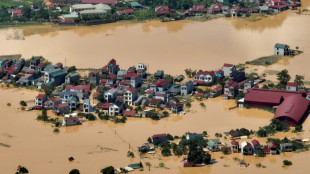 Thousands stranded as record floods submerge Vietnam streets
Thousands stranded as record floods submerge Vietnam streets
-
Sabalenka battles to keep Wuhan record alive, Pegula survives marathon
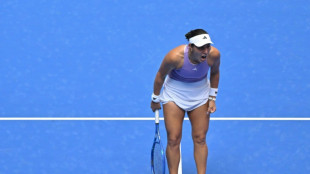
-
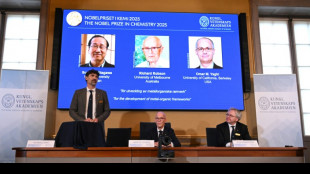 Trio wins chemistry Nobel for new form of molecular architecture
Trio wins chemistry Nobel for new form of molecular architecture
-
Tarnished image and cheating claims in Malaysia football scandal
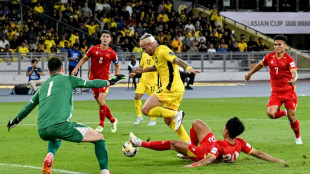
-
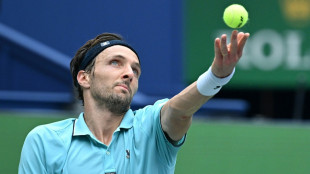 Family affair as Rinderknech joins Vacherot in Shanghai quarters
Family affair as Rinderknech joins Vacherot in Shanghai quarters
-
New documentary shows life in Gaza for AFP journalists
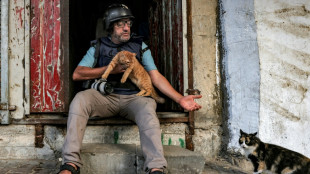
-
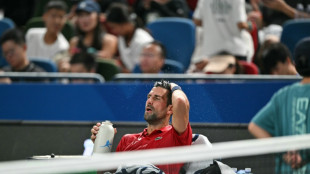 Tennis stars suffer, wilt and quit in 'brutal' China heat
Tennis stars suffer, wilt and quit in 'brutal' China heat
-
Wildlife flee as floods swamp Indian parks
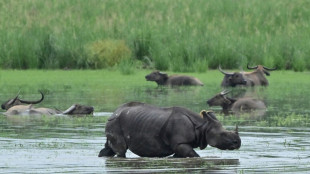
-
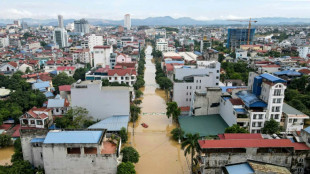 Record flooding hits Vietnam city, eight killed in north
Record flooding hits Vietnam city, eight killed in north
-
Battling cancer made Vendee Globe win 'more complicated', says skipper Dalin
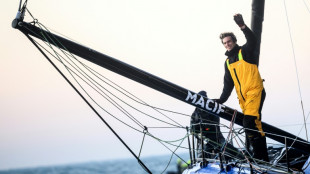
-
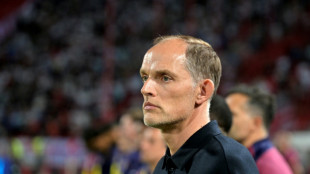 England, Portugal, Norway closing in on 2026 World Cup
England, Portugal, Norway closing in on 2026 World Cup
-
Child protection vs privacy: decision time for EU
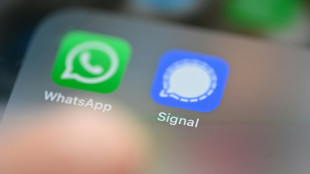
-
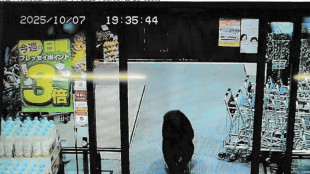 Bear injures two in Japan supermarket, man killed in separate attack
Bear injures two in Japan supermarket, man killed in separate attack
-
In Simandou mountains, Guinea prepares to cash in on iron ore
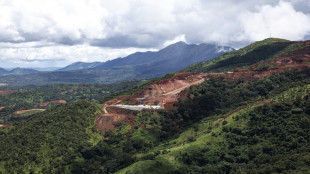
-
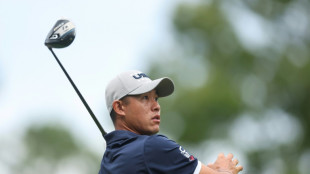 Morikawa says not to blame for 'rude' Ryder Cup fans
Morikawa says not to blame for 'rude' Ryder Cup fans
-
Far right harvests votes as climate rules roil rural Spain
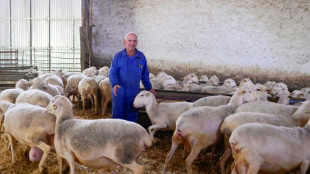
-
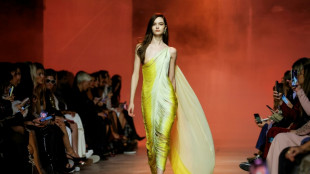 'Return to elegance': highlights from Paris Fashion Week
'Return to elegance': highlights from Paris Fashion Week
-
Britain's storied Conservative party faces uncertain future
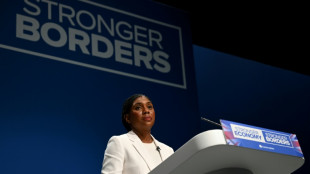
-
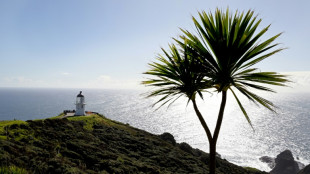 New Zealand's seas warming faster than global average: report
New Zealand's seas warming faster than global average: report
-
Snakebite surge as Bangladesh hit by record rains
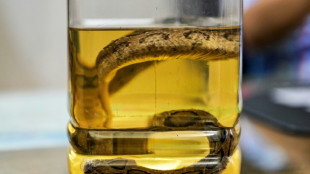
-
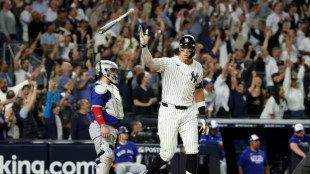 Yankees deny Blue Jays playoff sweep as Mariners beat Tigers
Yankees deny Blue Jays playoff sweep as Mariners beat Tigers
-
Australia police foil 'kill team' gang hit near daycare centre
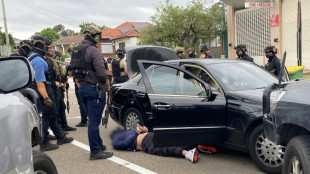
-
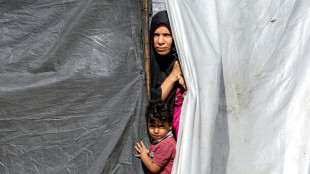 US, Qatar, Turkey to join third day of Gaza peace talks in Egypt
US, Qatar, Turkey to join third day of Gaza peace talks in Egypt
-
Gold tops $4,000 for first time as traders pile into safe haven
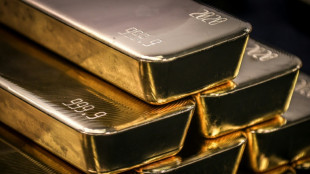
-
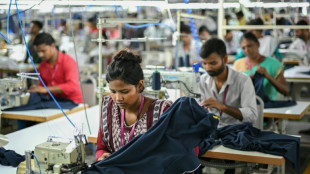 Indian garment exporters reel under US tariffs
Indian garment exporters reel under US tariffs
-
NBA back in China after six-year absence sparked by democracy tweet
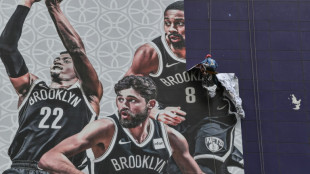
-
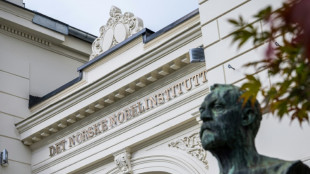 Energy storage and new materials eyed for chemistry Nobel
Energy storage and new materials eyed for chemistry Nobel
-
Trump unlikely to win Nobel Peace Prize, but who will?
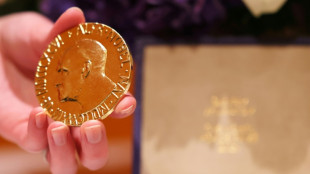
-
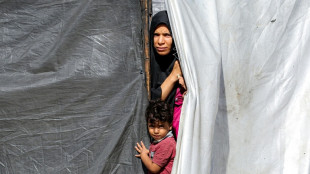 Qatar, Turkey to join third day of Gaza peace talks in Egypt
Qatar, Turkey to join third day of Gaza peace talks in Egypt
-
Study finds women have higher genetic risk of depression
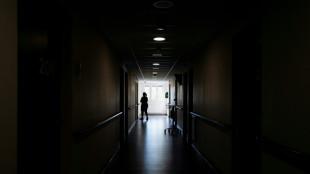
-
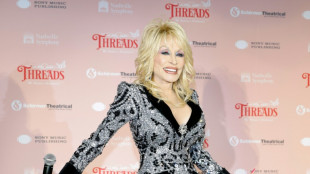 Dolly Parton's sister calls for fan prayers over health issues
Dolly Parton's sister calls for fan prayers over health issues
-
On Trump's orders, 200 troops from Texas arrive in Illinois
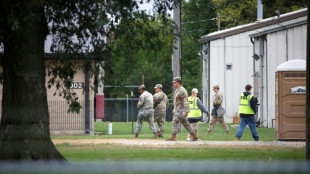
-
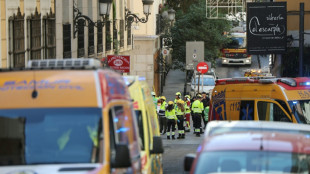 Two bodies found, two missing after Madrid building collapse
Two bodies found, two missing after Madrid building collapse
-
Panthers raise banner as NHL three-peat bid opens with win
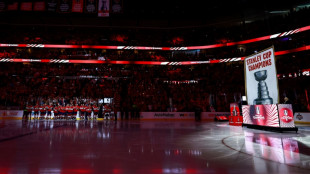
-
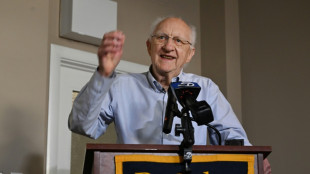 Nobel physics laureate says Trump cuts will 'cripple' US research
Nobel physics laureate says Trump cuts will 'cripple' US research
-
UFC star McGregor suspended 18 months over missed drug tests
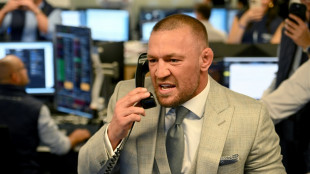
-
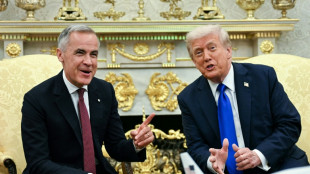 Trump talks up Canada trade deal chances with 'world-class' Carney
Trump talks up Canada trade deal chances with 'world-class' Carney
-
Ecuador president unharmed after apparent gun attack on motorcade
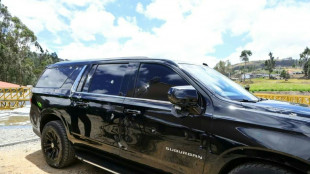
-
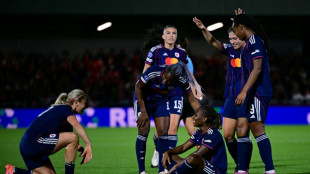 Lyon exact revenge on Arsenal, Barca thrash Bayern in women's Champions League
Lyon exact revenge on Arsenal, Barca thrash Bayern in women's Champions League
-
Trump says 'real chance' to end Gaza war as Israel marks attacks anniversary
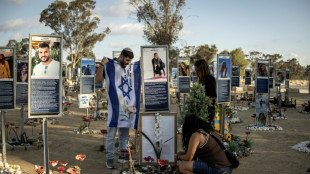

What we know ahead of conclave to elect new pope
Cardinals from around the world will meet under Michelangelo's frescoes in the Sistine Chapel on May 7 to elect a new leader of the Catholic Church after Pope Francis's death.
Dating back to the Middle Ages -- when the idea of sovereigns being elected was somewhat revolutionary -- the gathering, known as a conclave, has an air of mystery about it, as all participants are sworn to secrecy for life.
Here is what we know about the process:
- Where and when -
On Monday May 5, two days before the conclave, officials and staff taking part in the conclave will gather at 5:30 pm (1530 GMT) to sign an oath of secrecy.
The day itself, Wednesday May 7, will begin with a special mass at 10:00 am in St Peter's Basilica.
The conclave begins at 4:30 pm following a prayer in the Vatican's Pauline Chapel.
Cardinals will walk in procession to the Sistine Chapel before taking their oath of secrecy.
The conclave will last until a new pontiff is elected.
Cardinals wear different garments depending on whether they are from the Latin or Eastern churches.
Those in the Latin Church will don a "red robe with sash, rochet, mozzetta, pectoral cross with red and gold cord, ring, zucchetto (cap) and biretta", while those in the Eastern Church wear their "own choir dress", the Vatican said.
Each cardinal will wear an accreditation badge around his neck to help identify them as electors.
While it took almost three years to appoint Pope Gregory X in the 13th century -- the longest conclave to date -- modern gatherings are usually a matter of days.
Both Francis and his predecessor, Benedict XVI, were elected after two days of voting.
- Who takes part -
Only 133 of the Church's 252 cardinals are expected to take part in the conclave, as only those aged under 80 are eligible to vote for a new pope.
There are 135 eligible voters but the Vatican announced on Tuesday that two cardinals had dropped out for health reasons.
The archdiocese of Valencia in Spain confirmed to AFP that its archbishop emeritus, Cardinal Antonio Canizares was one of those who would not attend.
Most of those -- around 80 percent -- allowed to vote were appointed by Francis. They hail from all corners of the globe, with many from under-represented regions.
- Secrecy and security -
The word conclave comes from the Latin for "with key", a reference to the lockdown imposed on cardinals during the conclave.
Their deliberations are held in the strictest secrecy on pain of instant excommunication. Smartphones and any internet access are off-limits and cardinals cannot read newspapers, listen to the radio or watch TV.
The cardinals stay in the Santa Marta residence at the Vatican until they elect a new pope.
Any contact with the outside world is permitted only for "grave and urgent reasons", which need to be confirmed by a panel of four peers.
Only cardinal electors are allowed to be present during the actual voting, although others including doctors, clerical assistants and housekeeping staff are authorised to enter at different times.
- How voting unfolds -
Cardinals hold four ballots a day -- two each in the morning and afternoon -- until one candidate wins two-thirds of the votes, currently 89 ballots.
At the end of each session, the ballots are burned in a special stove. With the addition of chemicals, the stove's chimney stack emits black smoke if no one has been elected, or white smoke if there is a new pope.
If no new pope is elected after three days, cardinals take a break and hold a day of prayer and talks.
Any single Catholic adult male can be elected pope, although in practice it is almost always one of the cardinals.
Sick cardinals are allowed to cast their ballots from their beds within the Vatican.
- What happens next -
The winning candidate is asked by the Dean of Cardinals if he accepts the pontificate and, if the answer is 'yes', what name he chooses as pontiff.
The new leader of the world's 1.4 billion Catholics then comes out onto a balcony overlooking the crowds in St Peter's Square as a senior cardinal cries: "Habemus Papam" (We have a pope)!
R.Kloeti--VB
